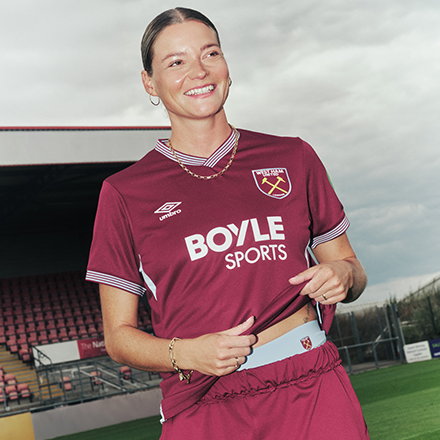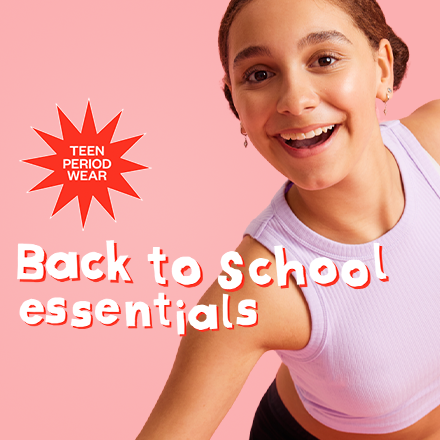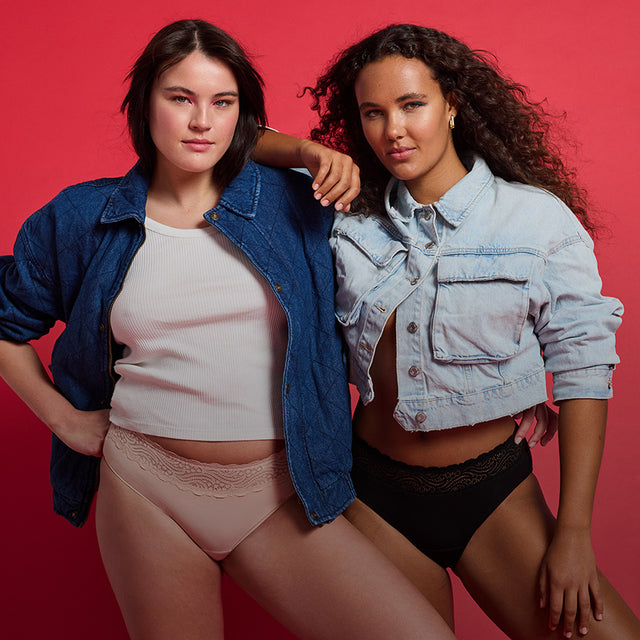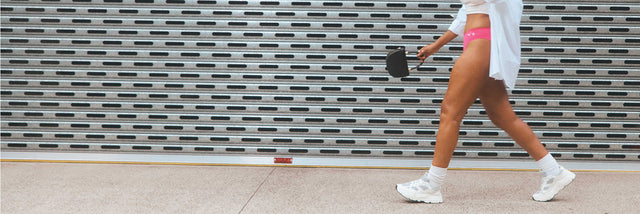Trigger warning: this story discusses miscarriage which may be triggering for some readers.
My postpartum journey started as my long birth ended - 20 hours of drug-free (posterior) labour and 48 hours without sleep. The relief was instant and crashing. It washed over me and our new son (a son! We had kept it a surprise) and I was happy to be home three hours later.
His brother arrived and we all got into bed together. I ate tom yum with rice and fell asleep mid-sentence.
Those first few days were filled with the most pleasant, all-encompassing emotion I had ever known. It was an experience of utter contentment. The smell of his head, his soft robust body curled on mine. His brother, his dad and I were instant, rabid fans. I can only describe those first few days as calm ecstasy.
November heat, naked skin and naps on the couch. Nothing bothered me and I couldn’t imagine ever feeling bothered again.

I don’t know if it was being a second time mum, hormones after a drug-free birth, or the five babies I lost trying to bring him earth-side but everything felt...perfect. If I could bottle that feeling, my god!!
It ended, of course it did. And with it came my milk. I found it frustrating to have to put clothes on. A minute to stretch my new body after the warmth of the shower? Certainly not. It was breast pads and postpartum nappies hiked straight up (yes me, in a nappy, with chafing)...thank god for period undies.
My new body? Hello. Hi. What are you now? Bigger boobs. Definitely. Decorated with thin blue veins. Bigger hips. I like them. Stomach? Shrinking quickly with stretched skin. I don’t have stitches or a tear. My abs need a little help closing. So now it’s a waist belt.
The rib pain I was having in pregnancy makes perfect sense as I can now see the bottom of my sternum has been displaced and sticks up, pulled out of place by my uterus. That’s you for life, says the doctor. It’s ok. None of it really bothers me.
I’m surprised that even though I succeeded in having the birth I planned for - natural, drug-free - I still feel like I failed in some way.
I was loud and I felt out of control. If birth is a beast, I hadn’t mounted it and tamed it. I had been dragged along, one foot in a stirrup as it bolted home.
Jackson tells me that I was so strong. He cries remembering it. I didn’t feel strong, I just didn’t “cave”. I don’t know why it matters, but it does.
For three weeks, I feel no hurry to see anyone or go anywhere. I just stare at Harvey. Illy, now 7, is also obsessed. He cries the first time he really hears Harvey cry, sobbing that it’s just so sad. I feel so lucky to have them. “So lucky”. The words feel throwaway, they fall short. Their bond is already ironclad. I hadn’t expected that. Illy has nothing but time for him. He is protective and doting. Empathetic and completely apt in his interactions. He tells me after lying on the mat next to Harvey that it was “the best time I’ve ever had in my life”.
I am exploding with love.
I’ve heard people say, after a miscarriage, or more, that when you finally look at your rainbow baby there’s this realisation like, oh! It’s you! You’re who we were waiting for! Of course. I wondered if I would feel something like that. Some understanding of it being him and not them. But I don’t feel that. Of course, I can’t imagine any other baby than Harvey. Of course, I’m glad it’s him. But I also know that I would have loved any of the other babies as much (all 5 of them). Who are they? I don’t know. I imagine Harvey lying next to them. Six little Harveys all lined up.
How amazing that he made it. He is so strong. He holds his head up. He breast crawls with ease. No wonder he’s so strong Mummy, says Illy. He’s the one that survived.

Q&A with Laksmi
Describe your postpartum journey in four words:
Euphoric, contented, tiring & curative.
What was the most unexpected aspect of postpartum?
As a second time mum I expected it to be more like my first time, when everything was such a shock and while you feel such intense love and happiness, my first time I was in a state of anxiety and worry over every little thing. The first time is something you’re just shocked into, you’re no longer autonomous, you can’t do the things you want to do when you want to do them, like needing to pee or getting a glass of water, and I don’t think anything can prepare you for that.
The second time, I expected that anxiety again and a bit of that depression, not in the clinical sense, but that sense of dread at dusk of the night stretching before me and feeling all on my own and knowing I was going to be up all night with the baby. But it was different. I was so relaxed.
I don’t know if the fact I’d had so many losses between my older son and this baby contributed - I was just so happy to have that period where you’re in the trenches of pregnancy loss behind me - or if it was the hormonal cocktail they talk about when you don’t have drugs in labour, but I felt incredible.
Maybe because I found it much easier, I don’t know if my brain just wanted to create something to worry about, but I was shocked when I felt guilty after a few days at home, thinking what else should I be doing, that feeling like I needed to have a job or a creative project. I was torturing myself, saying ‘what else could you be doing now you’re home, you should be doing more’. It didn’t last too long because when Harvey became much more demanding of me I got so busy I didn’t have the brain space for anything else. But it was just something that surprised me.
How do you think postpartum is portrayed on social media?
In some ways, I appreciate it because we’re so isolated in our motherhood journeys and it’s so nice to feel that connection, even though the connection can be problematic if you’re feeling that need to compare.
Maybe social media contributed to the guilty feeling I had about not doing more, because I’d see people with one, two, three kids and feel like ‘they’re in the newborn stage and also doing this other creative pursuit or running a business’, but all in all I think it’s a positive which replaces what we’re all craving – that sense of community.
What’s the hardest part of postpartum?
The hardest part of postpartum, and motherhood, for me is that sense of community. We all want our own four walls and our own toaster, and I do too, but it comes with a loss of community, which is sad.
Motherhood is a time when you really want that tribe around you, and while I have friends with babies, it’s still so difficult to meet up unless you literally live on the same street together. I think it’s difficult to parent in a community, yet I think it’s also something we crave as mothers, and there’s no time I've found that that feeling of loss is as heightened as it is as a parent, just wanting that shared experience with other mothers going through it at the same time.
The most positive aspect?
There are so many positives, obviously the love you feel is unlike anything else. I also found there was a sense of calmness and relief and that I became a better person in that I didn’t have the time or space to self-obsess any more. We all have so much time before kids to focus on our own things, you drive yourself crazy with, ‘what should I be or do with my life?’ or ‘where should I live?’. I find motherhood grounds you and takes the pressure of those things, it’s a healthier mental state when you’re caring for something outside yourself. I don’t mean that self-care isn’t important, it’s absolutely crucial, I just mean I was able to let go of the circular patterns of questioning I found myself in before becoming a mother, and that’s been a positive for me. I love having two children to pour my love and time into, and to give myself a break from that intense gaze.
What kind of support system did you have in the postpartum period?
The first time around I didn’t have much postpartum support, I didn’t really know I would need much, it wasn’t something anyone told me, or I had prepared for. I feel like there is a lack of conversation about ‘where do I find this support system?’
My friends didn’t have kids at the time, my partner worked, my family worked and were busy and I felt quite lonely. I tried a mother’s group but I didn’t feel I quite belonged there, so that was hard. This second time I have more of a support system. My friends organised for me to have the ‘golden month’ for the first four weeks postpartum – where food is supplied to you as a way for friends to show their love and care - and that was incredibly helpful. It gave me a break from the practical things so I had more time to just lay there and stare at my newborn for longer, or let him sleep on me while feeling nourished by other people’s cooking. It was just a really nice thing that was done for me. All of my friends are now knee deep in kids, so I feel a much more shared experience the second time around.

What advice would you give to pregnant mums to be and their partners about postpartum?
I don’t think anything I can say will change how you experience it, you know, I could say ‘just remember it’s all a season’ or ‘it will pass’ or ‘the days are long, but the years are short’ and all those things are true, but I don’t think you can feel or understand it until you experience it.
It’s worth having those conversations with your partner before giving birth about what you expect from each other and imagine what your ideal dynamic will be once that baby is in your life. It’s really easy to feel resentful in that first year, it’s such a teething process as you figure out your new roles and ways of being around each other. It’s a shock for a while, especially for the person who becomes the full-time carer early on, and it’s such a different role you take on and it can breed that feeling of ‘look at them, they get to go to work’, while for the other partner, they might think ‘they just get to stay at home and be with the baby, I wish I could do that’.
My advice would be that no good can really come from that place, so try to see things from the other person’s side, and to explain what you’re going through. I think those resentments grow, and it’s something I still struggle with and it’s probably the number one discussion in households I’m around with a pair of parents – who does more? Who needs more of a break?
It’s important to sit down and talk about both of your needs when things aren’t heated.
I heard this tip from a podcast, it was about a dad coming home from work, and the advice was instead of walking in and asking the stay-at-home parent, ‘what did you do today?’, asking them ‘how was your day?’. It’s so simple but the idea was that when you ask what the person at home did, they can then think ‘gosh, what did I do today?’ even though they were flat out trying to get the baby to feed, sleep, changing nappies, cooking, washing etc, but it’s somehow a more confronting question. ‘How was your day?’ is a kinder way to check in with each other.
My final piece of advice is another relationship one, to let each find your rhythm in parenting without micro-managing...and it’s easier said than done.
For the partner who’s the day-to-day primary caregiver to relinquish that control, even if you’ve found a better way of doing some things, and to let the other parent find their own way of doing things without you hovering over them, or them having to defer to you on every decision. I really think this sets you up for success in the long run.
Why did you want to be part of the Embodied: Postpartum Unfiltered campaign?
I just think it’s so important to share these really common human experiences we’re all having. There’s no good that can come from shying away from being really open and honest, because while it’s a personal journey, it’s also a common journey we’re all facing. There’s something freeing in being open and sharing, whether you’re going through postpartum, or losses. Hearing other people’s stories is helpful, it’s the great connector, that helping hand we can give each other in the hope it might make people feel less alone
For support for those who’ve experienced miscarriage, stillbirth or newborn death, call the SANDS 24/7 Bereavement Support line on 1300 308 307 or visit www.sands.org.au








